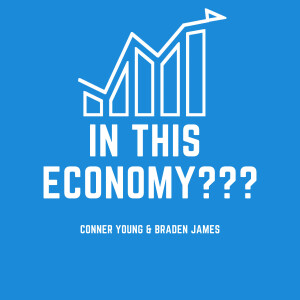
- Podcast Features
-
Monetization
-
Ads Marketplace
Join Ads Marketplace to earn through podcast sponsorships.
-
PodAds
Manage your ads with dynamic ad insertion capability.
-
Apple Podcasts Subscriptions Integration
Monetize with Apple Podcasts Subscriptions via Podbean.
-
Live Streaming
Earn rewards and recurring income from Fan Club membership.
-
Ads Marketplace
- Podbean App
-
Help and Support
-
Help Center
Get the answers and support you need.
-
Podbean Academy
Resources and guides to launch, grow, and monetize podcast.
-
Podbean Blog
Stay updated with the latest podcasting tips and trends.
-
What’s New
Check out our newest and recently released features!
-
Podcasting Smarter
Podcast interviews, best practices, and helpful tips.
-
Help Center
-
Popular Topics
-
How to Start a Podcast
The step-by-step guide to start your own podcast.
-
How to Start a Live Podcast
Create the best live podcast and engage your audience.
-
How to Monetize a Podcast
Tips on making the decision to monetize your podcast.
-
How to Promote Your Podcast
The best ways to get more eyes and ears on your podcast.
-
Podcast Advertising 101
Everything you need to know about podcast advertising.
-
Mobile Podcast Recording Guide
The ultimate guide to recording a podcast on your phone.
-
How to Use Group Recording
Steps to set up and use group recording in the Podbean app.
-
How to Start a Podcast
-
Podcasting
- Podcast Features
-
Monetization
-
Ads Marketplace
Join Ads Marketplace to earn through podcast sponsorships.
-
PodAds
Manage your ads with dynamic ad insertion capability.
-
Apple Podcasts Subscriptions Integration
Monetize with Apple Podcasts Subscriptions via Podbean.
-
Live Streaming
Earn rewards and recurring income from Fan Club membership.
-
Ads Marketplace
- Podbean App
- Advertisers
- Enterprise
- Pricing
-
Resources
-
Help and Support
-
Help Center
Get the answers and support you need.
-
Podbean Academy
Resources and guides to launch, grow, and monetize podcast.
-
Podbean Blog
Stay updated with the latest podcasting tips and trends.
-
What’s New
Check out our newest and recently released features!
-
Podcasting Smarter
Podcast interviews, best practices, and helpful tips.
-
Help Center
-
Popular Topics
-
How to Start a Podcast
The step-by-step guide to start your own podcast.
-
How to Start a Live Podcast
Create the best live podcast and engage your audience.
-
How to Monetize a Podcast
Tips on making the decision to monetize your podcast.
-
How to Promote Your Podcast
The best ways to get more eyes and ears on your podcast.
-
Podcast Advertising 101
Everything you need to know about podcast advertising.
-
Mobile Podcast Recording Guide
The ultimate guide to recording a podcast on your phone.
-
How to Use Group Recording
Steps to set up and use group recording in the Podbean app.
-
How to Start a Podcast
-
Help and Support
- Discover

12. When is the recession actually going to happen?
-Treasury Yields
-Interest Rates
-Incoming Recession
-Unemployment Numbers/Layoffs
Why can't the economy and the stock market figure out what it's doing?
The Federal Reserve (also known as the "Fed") may raise interest rates for a variety of reasons, including:
- To control inflation: One of the primary goals of the Fed is to maintain stable prices, which means keeping inflation in check. When inflation starts to rise above the Fed's target rate, they may raise interest rates to make borrowing more expensive and slow down economic activity, which can help to reduce inflationary pressures.
- To slow down economic growth: When the economy is growing too quickly, there may be concerns about overheating, which could lead to inflation or other economic imbalances. By raising interest rates, the Fed can make it more expensive to borrow money, which can slow down consumer and business spending, and ultimately slow down economic growth.
- To attract foreign investment: When interest rates are higher in the United States compared to other countries, it can make investing in U.S. assets more attractive to foreign investors. This can help to increase demand for U.S. dollars, which can strengthen the value of the currency and support economic growth.
- To maintain financial stability: The Fed may also raise interest rates in response to concerns about financial stability. For example, if there are concerns about excessive borrowing or risk-taking in the financial system, the Fed may raise rates to encourage more prudent behavior and reduce the risk of a financial crisis.
Overall, the decision to raise interest rates is typically based on a complex assessment of economic conditions and the potential risks and benefits of different policy actions.
Disclaimer: All opinions from the hosts do not reflect investment advice or recommendations of any kind. This is not financial advice.
More Episodes
Create your
podcast in
minutes
- Full-featured podcast site
- Unlimited storage and bandwidth
- Comprehensive podcast stats
- Distribute to Apple Podcasts, Spotify, and more
- Make money with your podcast
It is Free
- Privacy Policy
- Cookie Policy
- Terms of Use
- Consent Preferences
- Copyright © 2015-2025 Podbean.com





